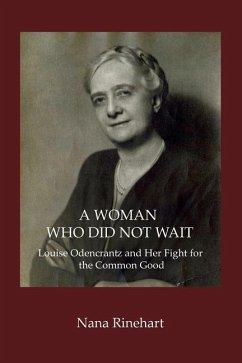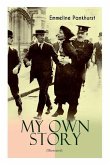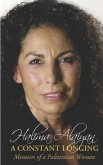This biography chronicles the life of Louise Odencrantz, who promoted social and industrial reform during the early twentieth-century, applied Progressive Era principles to the private sector during the 1920s, and helped return these ideas and practices to the mainstream during the New Deal. The author's primary aim is to call attention to the under-reported role of women in transforming the American workplace by inspecting factories, interviewing and negotiating with workers and employers, serving on commissions, directing agencies, lecturing, and publishing books and articles. A related aim is to highlight the contrast between these women's vision of society and twenty-first-century distrust of institutions and emphasis on increasing shareholder value as the only goal of corporations. Odencrantz insisted that "industry exists for people, not people for industry; and industry can never be considered satisfactory until it serves effectively those who furnish capital and directing ability, those who furnish labor, and those who form the consuming community." She believed in the common good-not only as a moral value but as a concrete goal to be realized through structures and procedures that recognized the value of individuals and made it possible for them to contribute. This biography is richly researched and based on primary source documents, including both Odencrantz's manuscript collection at Harvard University as well as Rinehart's own collection of family papers and recollections.
Hinweis: Dieser Artikel kann nur an eine deutsche Lieferadresse ausgeliefert werden.
Hinweis: Dieser Artikel kann nur an eine deutsche Lieferadresse ausgeliefert werden.







